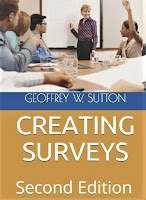Scale Name: Trait Forgiveness Scale (TFS)
There are several questionnaires that can help individuals, clinicians,
and researchers discover levels of forgiveness. As you might suspect, the
different measures reflect different ideas about forgiveness.
In this post I will look at trait forgiveness rather than
state forgiveness. I am using trait in a psychological sense to mean a
disposition or tendency—a behavior pattern that we might consider a part of
someone’s personality. Psychological scientists sometimes refer to trait forgiveness as dispositional forgiveness or forgivingness.
Trait forgiveness stands in contrast to a particular state
of forgiveness. For example, a person may think about a specific offender and a
specific event and respond to questions on a “state” scale to indicate their
current progress in forgiving the offender.
We should also keep in mind that most older forgiveness scales focused
on victims forgiving another person rather than forgiving themselves.
Trait Forgiveness
Scale
The trait forgiveness scale was developed by several
psychological scientists (Berry, Worthington, O’Connor, Parrott, & Wade,
2005). There are 10-items, which are rated on a 5-point likert-type scale from
1 = strongly disagree to 5 = strongly agree. As you can see, scores could range
from 10 to 50.
Following are the phrases for each numerical rating.
5 = Strongly Agree
4 = Mildly Agree
3 = Agree and Disagree Equally
2 = Mildly Disagree
1 = Strongly Disagree
Reliability data have been reported in the range of .74 to
.80 using
Chronbach’s alpha. Two colleagues and I found alpha = .81 in a
Christian sample (Sutton, Jordan, & Worthington, 2014).
Forgiveness items
Following are two items that will give you a sense of how
the developers think about trait forgiveness.
_______ 1.
People close to me probably think I hold a grudge too long.
_______ 2. I
can forgive a friend for almost anything.
In the Berry et al. article, the authors provide average
scores for men and women in four samples. The mean scores for men ranged from
30.4 to 36.3 and for women, 31.3 to 34.9.
You can find the full 10-items of the Trait Forgiveness Scale on pages 222 - 223 of the Berry et al.,
(2005) reference listed below.
Learn more about scales and survey items in Creating Surveys. A handy reference for clinicians and researchers.
|
Creating Surveys
Create better surveys for work and school
|
References
Berry, J. W., Worthington, E. R., O'Connor,
L. E., Parrott, L., & Wade, N. G. (2005). Forgivingness, vengeful
rumination, and affective traits.
Journal of Personality,
73,
183-225. doi:10.1111/j.1467-6494.2004.00308.x
Click
for Online link
Sutton, G. W., Jordan, K., &
Worthington, E.L., Jr. (2014). Spirituality, hope, compassion, and forgiveness:
Contributions of Pentecostal spirituality to godly love.
Journal of Psychology and Christianity,
33, 212-226.
ResearchGate
Counselors and students in counselor education programs may find Applied Statistics for Counselors also relevant. See
Applied Statistics on
AMAZON.
|
|
Applied Statistics: Concepts for Counselors
|
Learn more about forgiveness in Chapter 6 of Living Well




Comments
Post a Comment